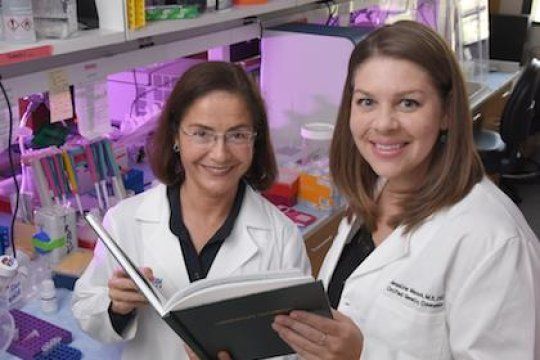That conclusion is based on a study that reviewed genetic testing results from 1.45 million individuals and found that nearly 25 percent of “variants of uncertain significance” were subsequently reclassified — sometimes as less likely to be associated with cancer, sometimes as more likely.
The study appears in the Journal of the American Medical Association (JAMA).
When variations from the norm are discovered in a gene, the variants are classified as “benign,” “likely benign,” “variant of uncertain significance,” “likely pathogenic,” or “pathogenic.”
Read more
